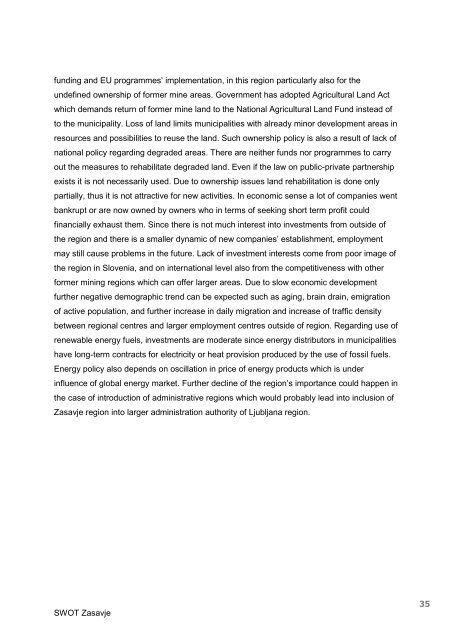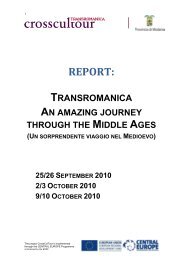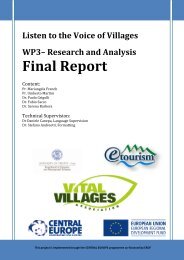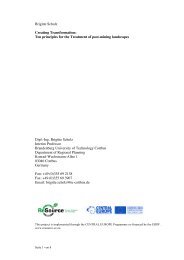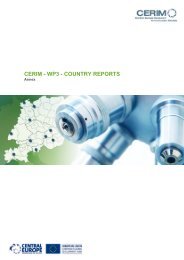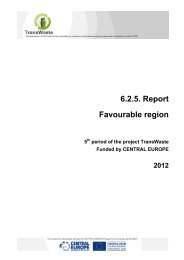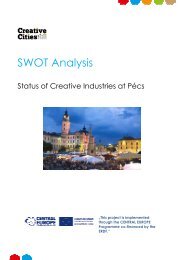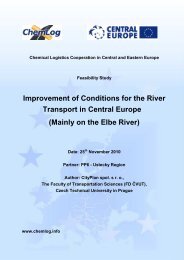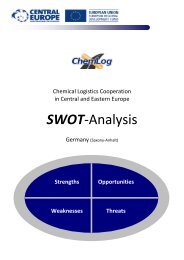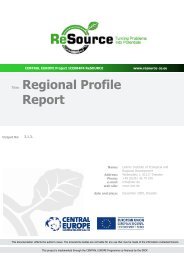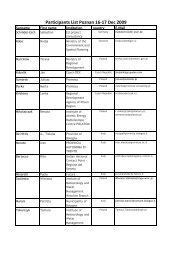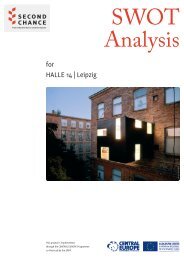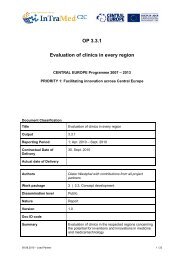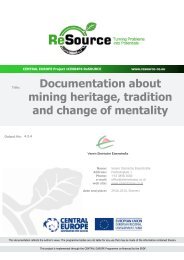SWOT Report I - Central Europe
SWOT Report I - Central Europe
SWOT Report I - Central Europe
You also want an ePaper? Increase the reach of your titles
YUMPU automatically turns print PDFs into web optimized ePapers that Google loves.
funding and EU programmes’ implementation, in this region particularly also for the<br />
undefined ownership of former mine areas. Government has adopted Agricultural Land Act<br />
which demands return of former mine land to the National Agricultural Land Fund instead of<br />
to the municipality. Loss of land limits municipalities with already minor development areas in<br />
resources and possibilities to reuse the land. Such ownership policy is also a result of lack of<br />
national policy regarding degraded areas. There are neither funds nor programmes to carry<br />
out the measures to rehabilitate degraded land. Even if the law on public-private partnership<br />
exists it is not necessarily used. Due to ownership issues land rehabilitation is done only<br />
partially, thus it is not attractive for new activities. In economic sense a lot of companies went<br />
bankrupt or are now owned by owners who in terms of seeking short term profit could<br />
financially exhaust them. Since there is not much interest into investments from outside of<br />
the region and there is a smaller dynamic of new companies’ establishment, employment<br />
may still cause problems in the future. Lack of investment interests come from poor image of<br />
the region in Slovenia, and on international level also from the competitiveness with other<br />
former mining regions which can offer larger areas. Due to slow economic development<br />
further negative demographic trend can be expected such as aging, brain drain, emigration<br />
of active population, and further increase in daily migration and increase of traffic density<br />
between regional centres and larger employment centres outside of region. Regarding use of<br />
renewable energy fuels, investments are moderate since energy distributors in municipalities<br />
have long-term contracts for electricity or heat provision produced by the use of fossil fuels.<br />
Energy policy also depends on oscillation in price of energy products which is under<br />
influence of global energy market. Further decline of the region’s importance could happen in<br />
the case of introduction of administrative regions which would probably lead into inclusion of<br />
Zasavje region into larger administration authority of Ljubljana region.<br />
<strong>SWOT</strong> Zasavje<br />
35


